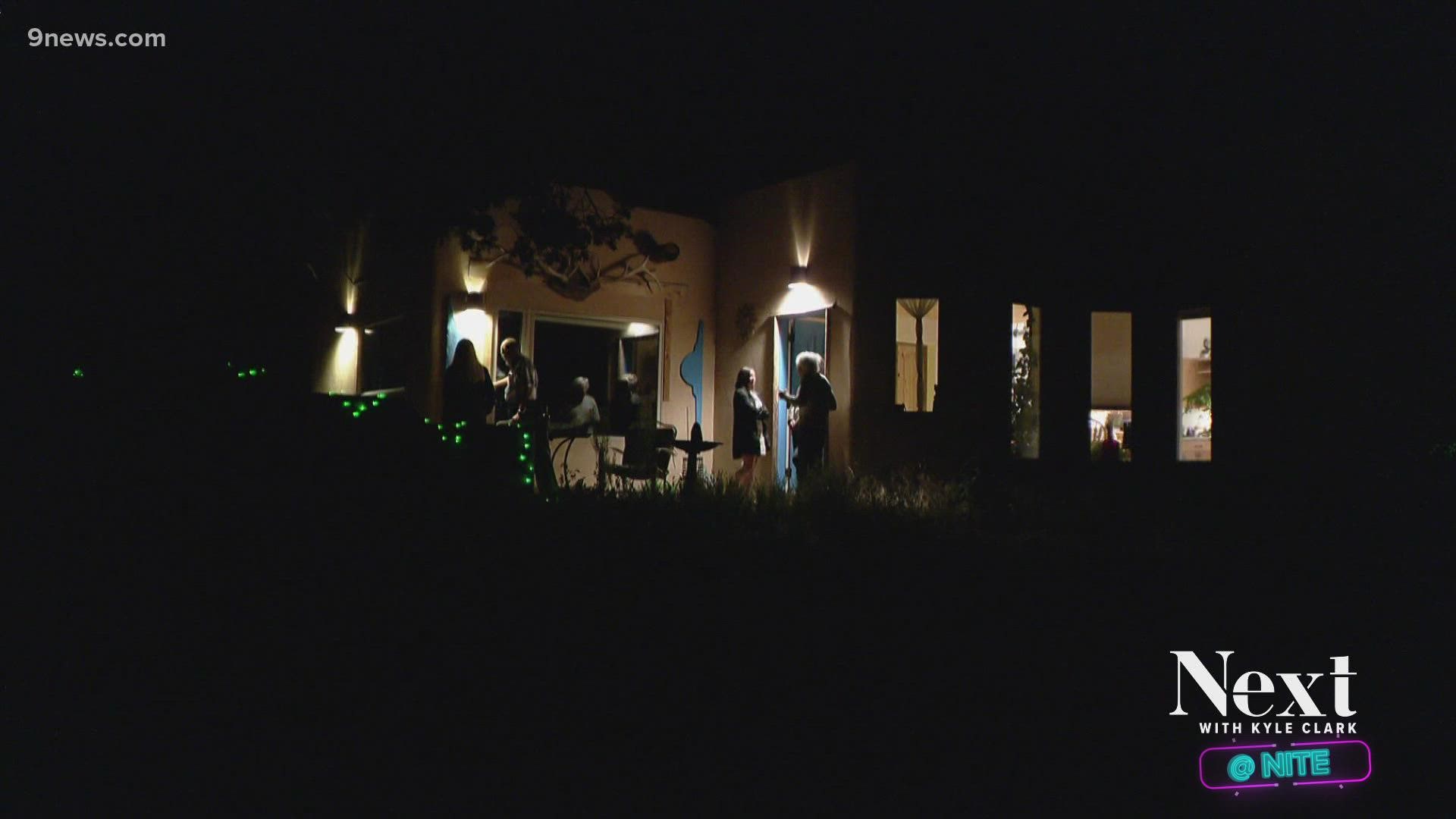NUCLA, Colo. — As the world reopens, 9NEWS reporter Marc Sallinger and Anne Herbst are hitting the road and Rediscovering Colorado.
A town’s connection with the earth has defined it for decades. Now that relationship is changing.
"When the mining community left, a lot of people left with that," said Natalie Binder, owner of Camp V, a group of historic cabins and camping spots in the town of Naturita. "When we do have people coming from Denver, one of the things they notice is just how quiet it is."
In bigger cities, people may be used to a dwindling view of the stars, but there are towns in Colorado that are fighting to keep the environment dark.
"Post the uranium mining and some of the extraction industries that have been here, there’s such an opportunity to enjoy this quiet solitude, rural, sort of Wild West type place," said Binder. "I don’t think there are many places like this that exist anymore."
You don’t hear a lot about uranium these days. You also don’t hear a lot about Nucla or Naturita.
Mining put these towns in Montrose County, in southwestern Colorado, on the map. Now these two dots, separated by millimeters on paper and four miles of highway, are redefining their relationship with nature. That’s getting people around here excited.
"They’re two little tiny towns," said Creighton “Woody” Wood, an amateur astronomer.
A retired cartographer like Wood knows his way around, yet he chooses to live somewhere not for what he can see in the light, but how dark it gets when the sun goes down.
Wood spends nights in his backyard observatory in Norwood, an international dark sky community just down the road but across the border, in San Miguel County.
"Oh, I love it! I think it’s great!" said Wood. "Absolutely, I want to keep this place dark."
Norwood was given the designation a couple of years ago, thanks to the work of people like Wood and Dr. Bob Grossman, who led the charge to apply for the designation and change lighting ordinances in the town. Grossman is a retired Professor of Atmospheric and Oceanic Sciences at the University of Colorado.
"That is what I am trying to preserve, a heritage," said Grossman. "This sky is something that once it goes away, it’s really hard to get it back."

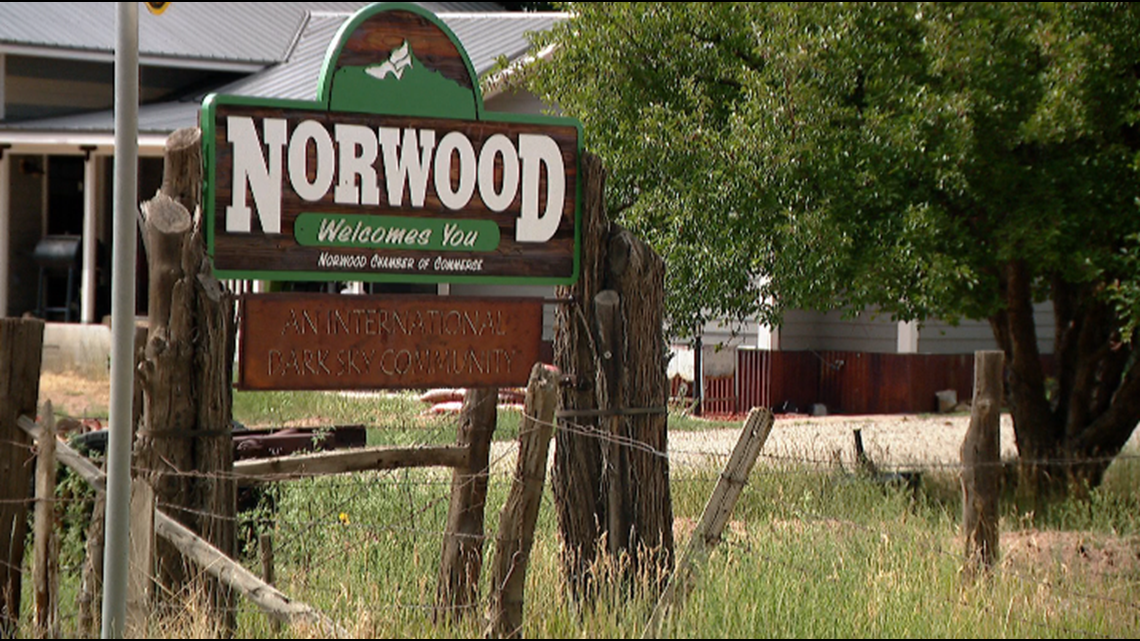
Now the dark sky is expanding 30 minutes past Norwood, over to its neighbors.
Deb Stueber is the head of the West End Dark Star Alliance. She petitioned the town of Nucla and its neighbor Naturita to change lighting regulations. A few months ago, the area became an internationally recognized dark sky community.
"Everyone said, we’re already dark! And we want to keep it that way," said Stueber. "No, this isn’t about turning lights out. This is about smart lighting."
The application took a year to put together but will take longer to implement. Stueber is hoping the towns will finish changing lights and lightbulbs over the coming years to make the glow of the town less. As more light in town faces down, it helps people be able to look up.
"Light that reflects up into space doesn’t really help you light up what you’re trying to see down here on earth," said Stueber. "If you control light pollution, you save energy, you save carbon, you protect wildlife, human health."

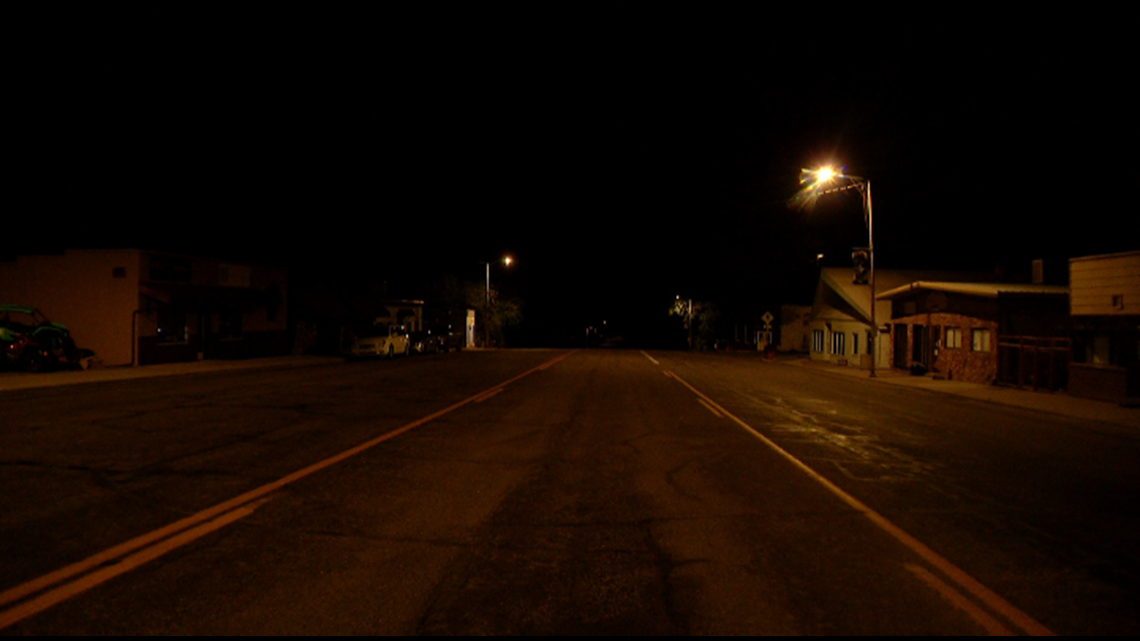
The dark sky designation keeps the stars bright with the goal of attracting visitors.
Binder's Camp V used to house engineers from the old uranium mine in the 1940s. Now the old town of Vancorum plays host to visitors from all across the country who come to stay at the cabins she’s restored. The camp mixes art with nature, boasting large art installations from Burning Man and refurbished cabins from decades ago.
Binder hopes the natural beauty and night skies will attract stargazers to this remote part of the state.

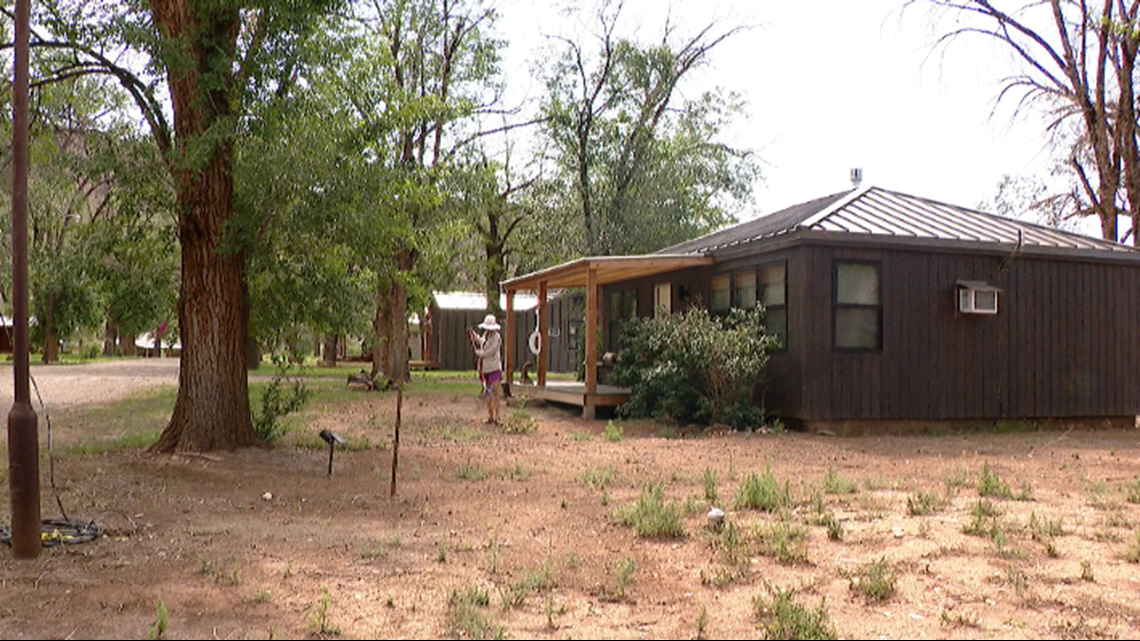
"We’re not trying to erase what it used to look like," said Binder. "Now we’re ready to look at a new chapter that’s potentially based in outdoor recreation and hospitality and art."
When the sun goes down, the real entertainment in this part of the state begins. Binder is hooked and she hopes others will also fall in love with the dark sky.
"Having that absence of light pollution and this wide-open vista, it really allows for such a connection to the stars and to the moon. It’s really quite special at night," said Binder. "To get that designation really opens up the people who follow that, who that’s important to them. It’s another avenue that can attract people to come here."
Even on a cloudy night, when nature doesn’t cooperate, friends still talk about what makes this part of Colorado special.
"This sky is something that once it goes away, it’s really hard to get it back," said Grossman, sitting around a table at his home in Norwood with Stueber and Wood. "If you look east, you’ll see the milky way."

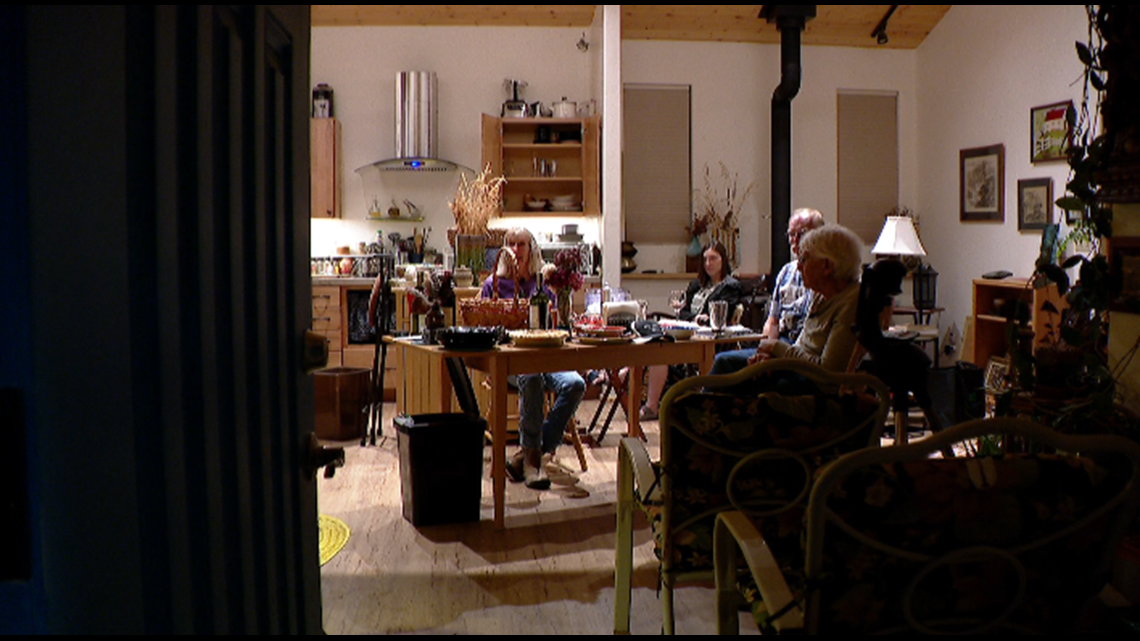
The Dark Sky Alliance out in southwestern Colorado is now working on creating a larger dark sky preserve in the entirety of San Miguel County. The county just recently passed new lighting policies to limit the amount of light pollution in the area.
Wood can’t imagine losing that. He wants to share the view that still makes him excited to look up.
"I love the dark sky that we have out here," said Wood. "If it starts getting lit up it’s going to go away."
The huge night sky makes a little map dot feel smaller. A cloudy night makes home even darker. Just the way they fought for it to be.
"It’s not so much what you do, it’s what you can see that you’ve not allowed to happen," said Wood as he looked up at the stars through a clearing in the clouds. "When we see the dark sky out there, we know we’ve been doing the job and we’re just hoping to continue."
SUGGESTED VIDEOS: Full Episodes of Next with Kyle Clark

